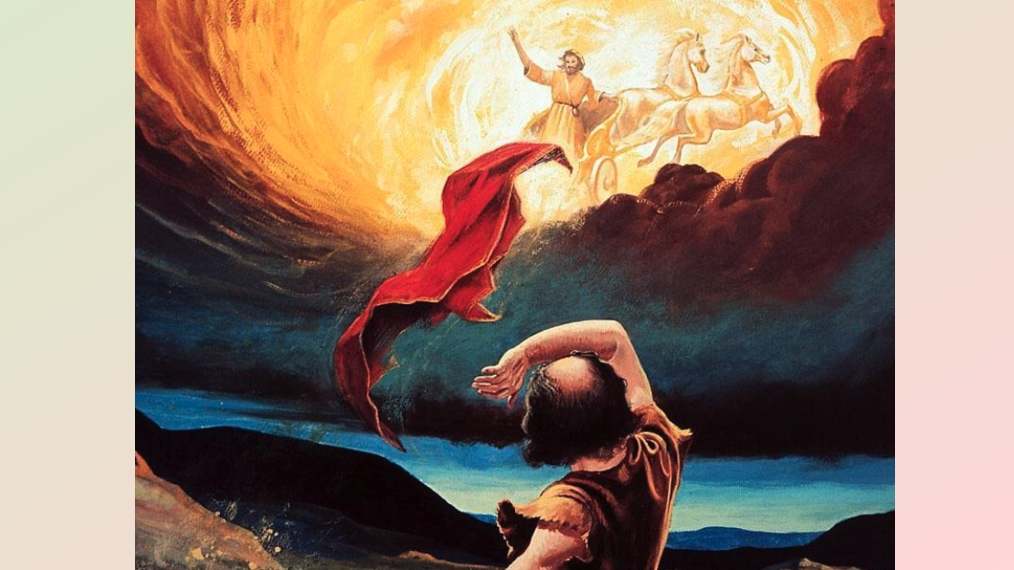The Significance of Elijah’s Ascension in Our Faith
June 19, 2024 - Wednesday of the Eleventh Week in Ordinary Time
2 Kings 2:1, 6-14
The story of Elijah being taken into heaven is unique in the Old Testament and, to some extent, prepares us for Jesus' ascension to the right hand of the Father. In the entire Old Testament, death is the end and everyone goes down, not up, to Sheol. Not even Moses, the one who spoke with the LORD like a friend, face to face, escaped that human destiny. Some point out that Enoch experienced a similar fate to Elijah, but what the phrase that Enoch "was not, for God took him" (Gen. 5:23) actually means is not clear.
This unique exit of Elijah from this life marked Jewish religious tradition. He is supposed to prepare the nation for the coming of the Messiah, and until that day, he travels between heaven and earth assisting the people of Israel in their journey through life. The Jews invoke his name at the end of the Sabbath, hoping that the new week will be the week of the coming of the Messiah. They invoke his name when a child is born, hoping the newborn may be the Messiah. There are tales of Elijah assisting people in their time of need.
Once upon a time, a Rabbi journeyed with the prophet Elijah, disguised as two beggars, to visit a poor couple. The couple warmly welcomed them, offering their best food and sleeping arrangements. In the middle of the night, Elijah vanished, and at dawn, the Rabbi was awakened by the cries of the woman: "Our cow has died!" This cow was their only valuable possession. The Rabbi comforted them, saying the LORD would take care of them, and they left. Elijah then explained to the Rabbi that an angel of death had come for the woman, but Elijah had persuaded the angel to take the cow instead. He assured the Rabbi that the couple would soon receive a new cow.
Elijah's association with redemption and the messianic era in Jewish tradition is adopted by Christian tradition. The Old Testament in the Christian Bible ends with the prophecy of Malachi about the coming of Elijah before the day of the LORD comes (Malachi 3:23-24). As we turn to the New Testament, we realize that Jesus' ministry is preceded by the ministry of John the Baptist, who came in the spirit of Elijah (see Luke 1:17; Matt. 17:11-13). There was a belief that when Elijah would come to prepare the way for the LORD, he was going to face a tragic death like most of the ancient prophets. And that is what happened to John the Baptist.
When Elijah was taken up to heaven, he left his mantle to his disciple. But when Christ ascended to heaven, He left His Church something more precious, namely His Body and Blood. With the mantle of Elijah, Elisha could divide the waters of the Jordan. On the other hand, the Eucharist unites us to Christ, separates us from sin, and endows us with the gift of life that does not know death. "Whoever feeds on my flesh and drinks my blood has eternal life, and I will raise him up on the last day" (John 6:54).




